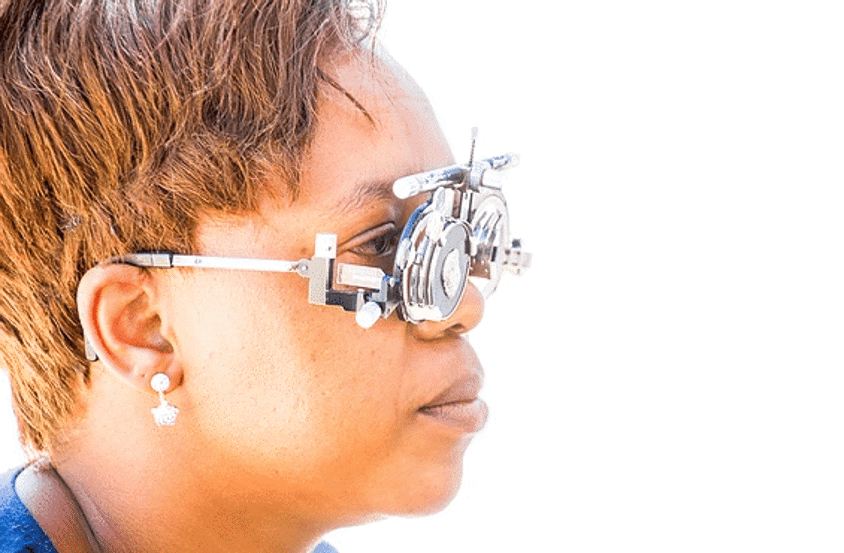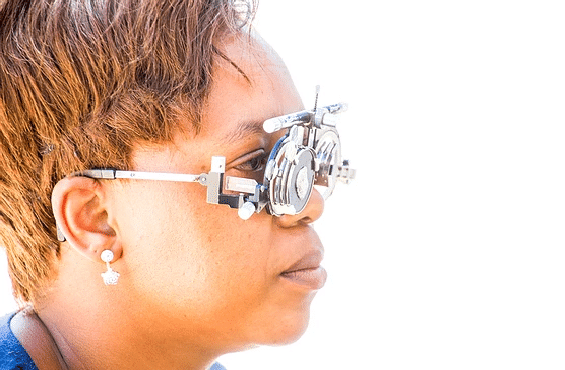What is hyperopia?
Hyperopia is a term used to describe a person’s vision, it relates to their refractive error (the strength of their glasses prescription). It is known by many people as ‘long-sightedness’.
How does hyperopia develop?
Hyperopia occurs when the eye is either too small or too short. It can also occur if the lens in the eye or the cornea (the front surface of the eye) are an abnormal shape. This results in the light that enters the eye being focused behind the retina (the light sensitive back of the eye) instead of onto the retina.

How does hyperopia affect vision?
As a general rule, people with hyperopia can usually focus well on objects in the distance but struggle to see objects which are close to them. This is not, however the case for everyone with hyperopia… Some people (especially children and young adults) may be hyperopic and may never have any visual problems, whereas others with significant hyperopia may have blurred vision at all distances!
What are the signs and symptoms of hyperopia?
Symptoms of hyperopia can vary from person to person. Some common signs and symptoms to look out for are:
- Blurred vision
- Headaches
- Eyestrain
- Squint
- Difficulty changing focus between near and distant objects
These symptoms may be exacerbated after long periods of close concentrated work.
How can hyperopia be diagnosed?
Hyperopia can be detected during a routine sight test with an eye care professional. For some younger children, dilating eye drops may need to be used to help detect the condition.
The optician will usually check the vision using eye test charts at both near and far until a sharp image is achieved at all distances before using lenses to correct the vision . The lenses required to correct the vision relate to the amount of hyperopia that a person has.
How can hyperopia be corrected?
Glasses – Hyperopia can be easily corrected by wearing glasses prescribed by an eye care professional. Glasses are a safe, simple way to correct hyperopia, however they can be uncomfortable and inconvenient at times.
Contact Lenses – Contact lenses are a safe and effective way to correct hyperopia whilst also offering a wider field of view and freedom from the inconvenience of glasses. Some people may be unsuitable for contact lenses, so if you are unsure, ask your eye care professional for advice.
Surgery – Surgical options for correcting hyperopia include Laser Surgery and Clear Lens replacement Surgery. Surgical options carry the most risks, so other forms of hyperopic correction should be tried first. Surgery should always be carefully considered.
Related articles





